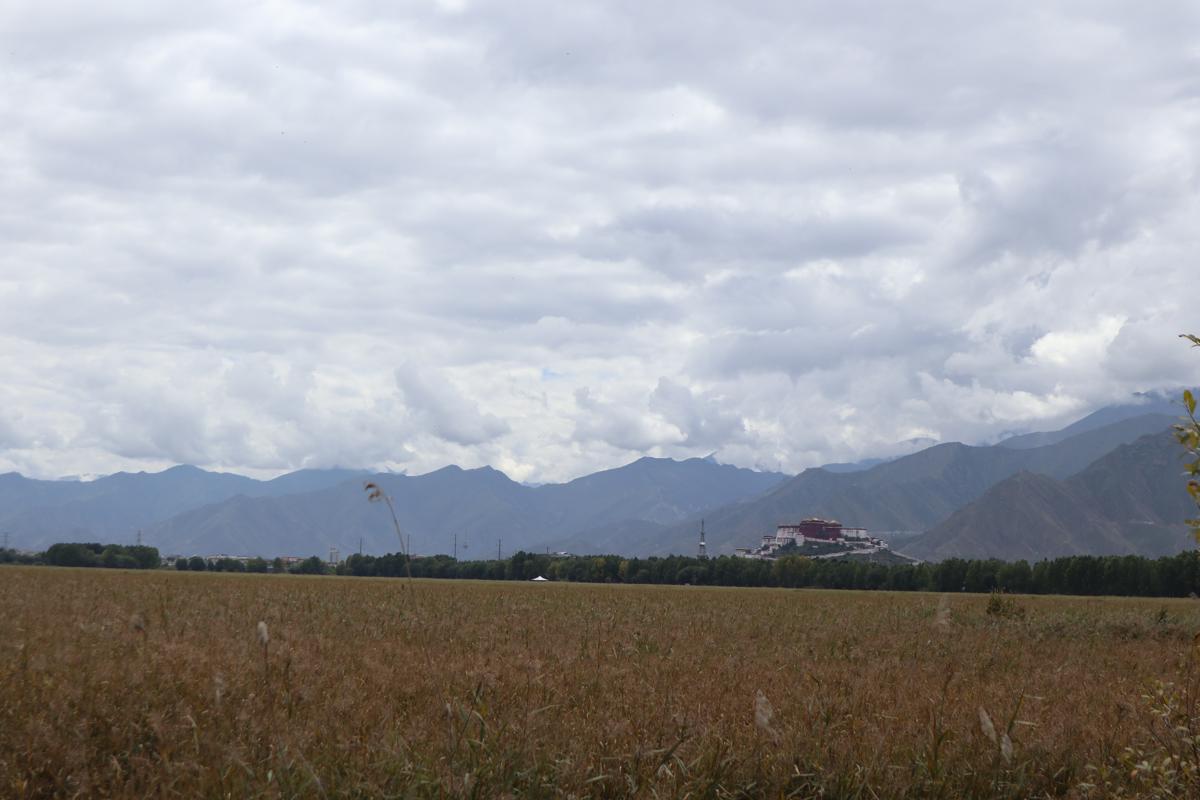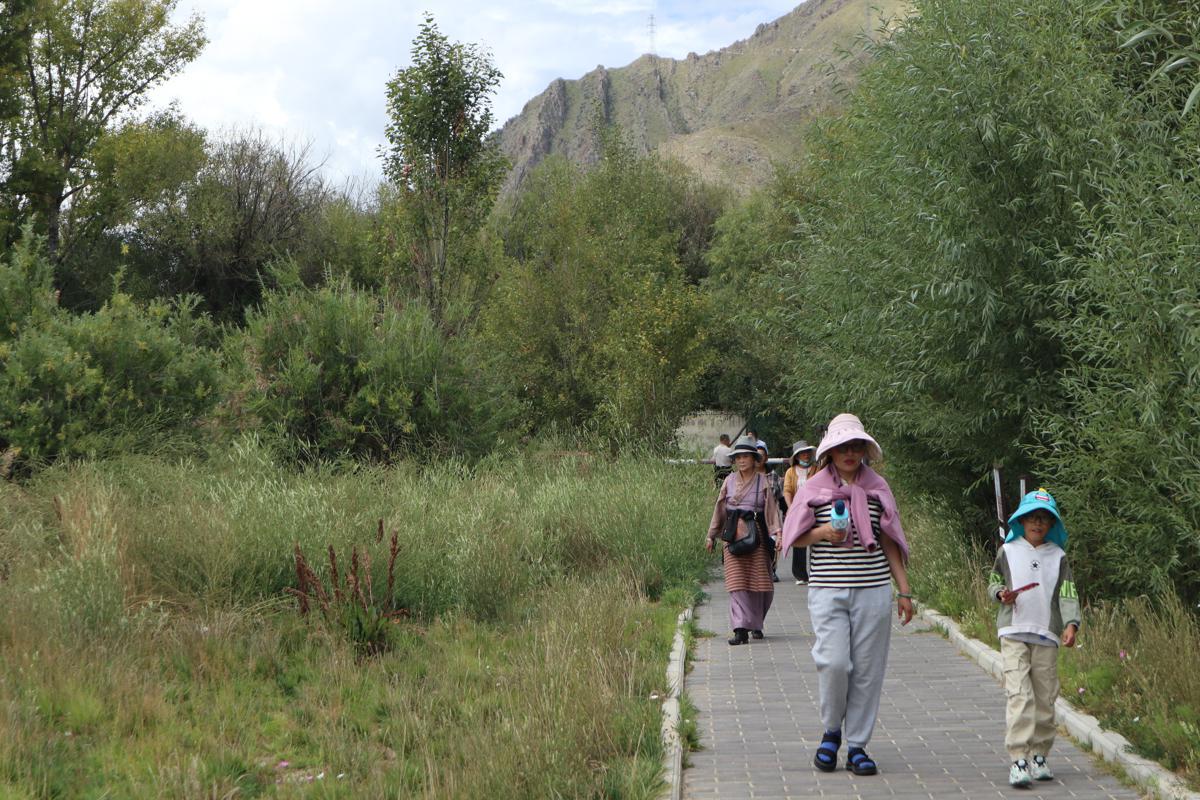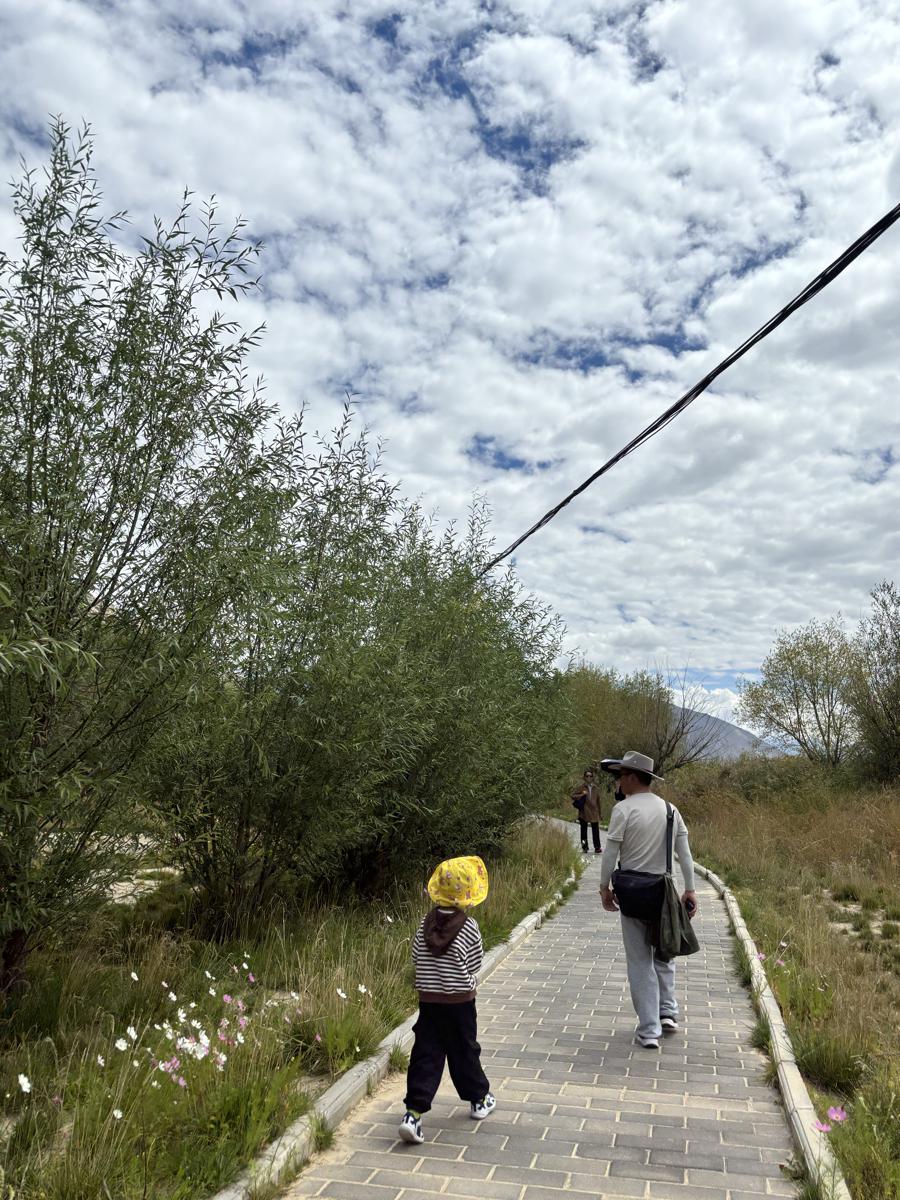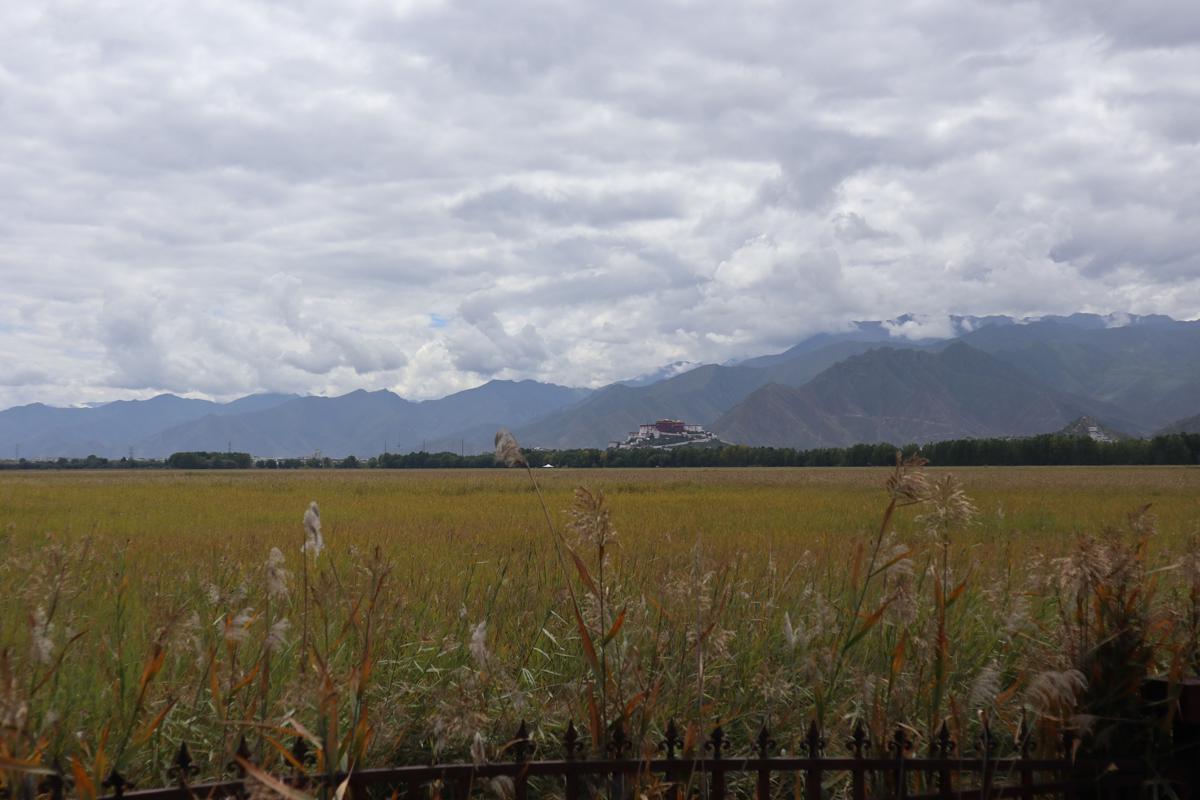Lhalu Wetland sees major ecological improvements
Updated: 2024-09-03 By Palden Nyima and Daqiong (chinadaily.com.cn)  Print
Print 



The Lhalu Wetland National Nature Reserve in Lhasa, Xizang autonomous region, known as the "lungs of Lhasa", is a biological gene bank for the city. [Photo by Palden Nyima/chinadaily.com.cn]
In recent years, the ecological environment of the Lhalu Wetland in Lhasa, capital of the Xizang autonomous region, has been significantly improved thanks to a series of ecological civilization construction and protection efforts, said the Lhalu Wetland National Nature Reserve Management Bureau on Sunday.
The wetland has attracted hundreds of bird species, and the population and biological resources of plants and animals have been increasing in recent years, the bureau said.

The Lhalu Wetland National Nature Reserve in Lhasa, Xizang autonomous region, known as the "lungs of Lhasa", is a biological gene bank for the city. [Photo by Palden Nyima/chinadaily.com.cn]
Lhamo Tsering, head of the bureau, said the water conservation capacity in the protected area has been enhanced, and land desertification has been effectively controlled thanks to the efforts.
Located at the northern corner of Lhasa and covering an area of more than 12 square kilometers, the Lhalu Wetland is the world's highest-altitude natural wetland. It is a paradise for numerous bird species and other forms of wildlife. It is also known as the "lungs of Lhasa".

The Lhalu Wetland National Nature Reserve in Lhasa, Xizang autonomous region, known as the "lungs of Lhasa", is a biological gene bank for the city. [Photo by Palden Nyima/chinadaily.com.cn]
In July 2005, the State Council officially approved the Lhalu Wetland as a national wetland nature reserve. In 2008, the Lhalu Wetland National Nature Reserve Management Bureau was established, and in 2010, the Regulations on the Management of the Lhalu Wetland National Nature Reserve of Lhasa was promulgated. In 2018, they were revised, providing a legal basis for protecting and managing the wetland.

The Lhalu Wetland National Nature Reserve in Lhasa, Xizang autonomous region, known as the "lungs of Lhasa", is a biological gene bank for the city. [Photo by Palden Nyima/chinadaily.com.cn]
"In order to effectively protect the unique alpine wetland of Lhalu Wetland, since the establishment of the Lhalu Wetland Reserve in 2005, the country has invested more than 550 million yuan ($77 million) in a series of protection projects," said Lhamo Tsering.
She said that this wetland provides a habitat for rare and endangered species, such as the black-necked crane and bearded vulture, and is the home of unique species in Xizang, with prosperous biological communities and diverse ecosystem services.
The Lhalu Wetland is irreplaceable in maintaining Lhasa's ecological balance, preserving biodiversity, regulating floodwaters, preventing wind erosion, and ensuring human habitation.

The Lhalu Wetland National Nature Reserve in Lhasa, Xizang autonomous region, known as the "lungs of Lhasa", is a biological gene bank for the city. [Photo by Palden Nyima/chinadaily.com.cn]








